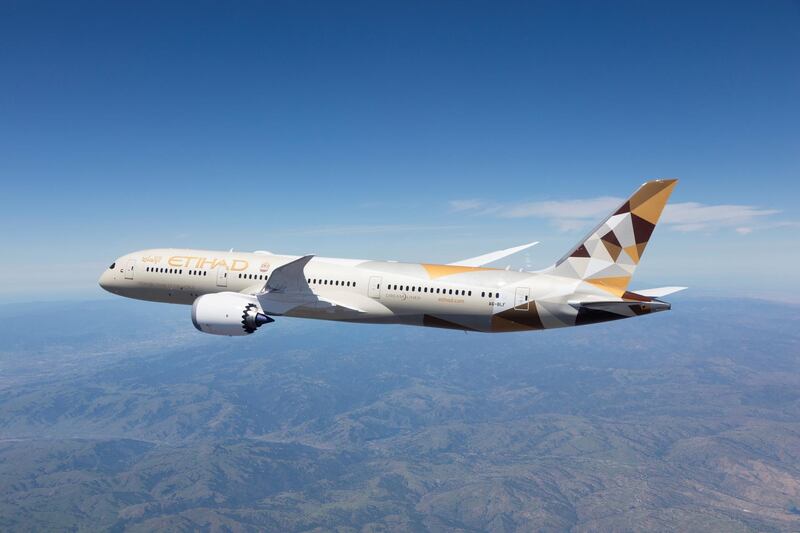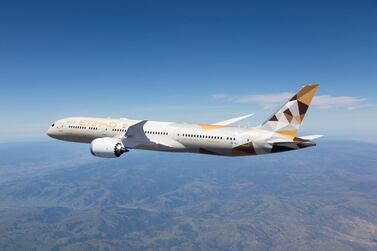Etihad is grounding its fleet of A380 superjumbos until demand rebounds as part of its strategy of operating a leaner business model amid the challenging environment the travel industry faces due to the impact of the Covid-19 pandemic.
“As Etihad continues to focus on recovery and rebuilding our global network, we will continue to rely on the efficiencies and advantages of our twin engine, wide-body aircraft,” an Etihad spokeswoman said on Sunday. “During this period, Etihad’s 10 A380s will remain grounded, unless the demand grows and there is sufficient appetite to reassess their viability.”
Earlier this month, Etihad revamped its organisational structure and "implemented bold changes" to set in motion "its transformation into a mid-sized, full-service carrier concentrating on its fleet of widebody aircraft" to deal with the impact of the pandemic.
“As a responsible business, we can no longer continue to incrementally adapt to a marketplace that we believe has changed for the foreseeable future,” Tony Douglas, group chief executive at Etihad Aviation Group, said on November 8. “That is why we are taking definitive and decisive action to adjust our business and position ourselves proudly as a mid-sized carrier.”
The Abu Dhabi-carrier grounded a majority of its fleet in March when the pandemic led to widespread border closures around the world.
Although the airline has gradually resumed its service to various destinations, Mr Douglas said in September that Etihad was yet to take a call on whether it will return its A380s to service again after the Covid-19 pandemic.
The Boeing 787 Dreamliner, the backbone of Etihad Airways' fleet, is "massively" more efficient than the four-engined A380 jet, he said in a podcast released by the airline.
"The jury is out," Mr Douglas said on whether Etihad will ever fly the A380 again. "It's heavily handicapped by two engines too many and [by] other aircraft that can do the job far more efficiently, far more sustainably."
The world's biggest passenger jet has seen its appeal wane in recent years as airlines increasingly opt for more cost effective models. The pandemic has led to most carriers grounding their A380s as long haul travel took a hit.
The aviation sector is among the worst hit sectors of the global economy as the pandemic decimated air travel demand, forcing airlines severely cut back operations and ground aircraft.








